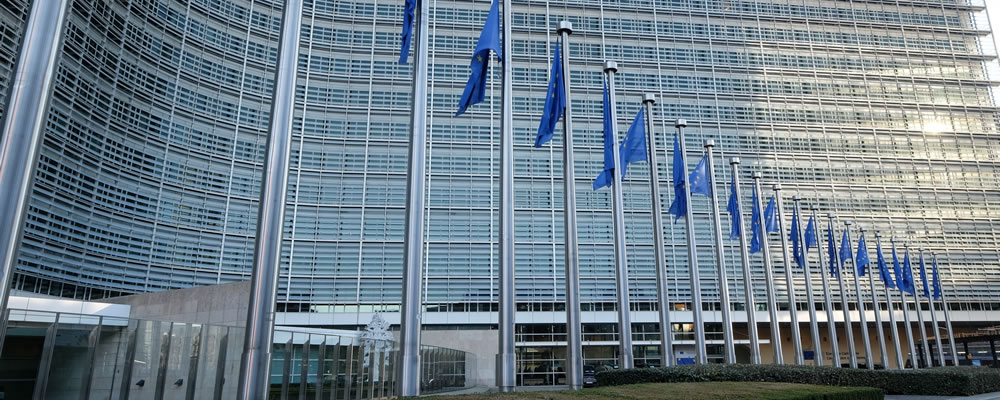Euro to Pound Exchange Rate Gains Limited amid Persisting Eurozone Economic Jitters
While the Euro to Pound Sterling (EUR/GBP) exchange rate avoided notable losses last week, it ultimately struggled to sustain too much in the way of gains. This was due to rising concerns about the Eurozone economy, as well as a rebounding Pound (GBP).
After opening last week at the level of 0.8960, EUR/GBP spent most of the week trending with an upside bias.
At the week’s highest point, EUR/GBP had seen an impressive jump and trended near its best levels since January, 0.9006.
EUR/GBP slipped back from those highs towards the end of the week, and trended a little closer to the week’s opening levels again.
Investors opted to buy the embattled Pound back from its cheapest levels in profit taking, ahead of next week’s final full week of Britain’s Conservative Party leadership contest.
Euro (EUR) Exchange Rates Unable to Capitalise on Stronger Eurozone Industrial Production
Concerns about the resilience of the Eurozone economic outlook and whether or not it is recovering from the slowdowns seen earlier in the year remain a major source of uncertainty for Euro investors, and have limited demand for the shared currency.
Last week’s Eurozone data was too mixed to offer the Euro any solid support either.
While some stats came in higher than expected, including German inflation and the Eurozone’s overall industrial production stats, these were not enough to offset concerns over the weakness in other figures.
German factory stats continue to fall short of expectations in many notable prints, including industrial production and wholesale prices figures last week.
Analysts were also cautious about the stronger overall Eurozone industrial production data. According to Bert Colijn, Economist at ING Bank:
‘Don’t let the numbers fool you,
Without an improved trade outlook, manufacturing could be in for a weak second half of the year.’
Pound (GBP) Exchange Rates Rebound from Worst Levels
While no-deal Brexit fears persist and are keeping significant pressure on the Pound, preventing it from climbing too high, some investors did opt to buy the British currency back up from its cheapest levels last week.
Some analysts perceive the Pound as having been oversold, and as it was near its cheapest levels in over half a year against the Euro, it was fairly appealing amid a lack of fresh major negative news.
Britain’s growth was a little better than expected in May, and the Bank of England (BoE) indicated in its financial stability report that Britain’s economy would be able to survive a worst-case scenario no-deal Brexit.
Mark Carney, the BoE’s Governor, said:
‘The system would continue to serve UK households and businesses even if worst-case disorderly Brexit occurred at the same time as a global slowdown triggered by a trade war,’
He did continue to warn that the economy would be damaged by these events.
Still, ultimately his comments, as well as bets that a negotiated Brexit was still the most likely Brexit outcome, helped the Pound to recover before markets closed at the end of the week.
Euro to Pound (EUR/GBP) Exchange Rate to be influenced by Central Bank Bets and UK Politics
Euro investors remain hesitant to buy the shared currency too much, as lingering signs of weakness in Eurozone data are keeping European Central Bank (ECB) easing speculation ignited.
As a result, if upcoming major Eurozone ecostats due in the coming week impress investors, they could soften ECB easing speculation and could offer the Euro some more solid support.
The most influential ecostats due over the coming week will be published on Tuesday and Wednesday.
Tuesday will see the publication of the Eurozone’s May trade balance report, as well as ZEW’s German and Eurozone economic sentiment surveys.
They will be followed on Wednesday by the Eurozone’s final June inflation rate stats.
If these figures all beat expectations, they could make investors more confident that the Eurozone economy is recovering more strongly. Weaker stats would cause concerns to persist though, which would cause ECB rate cut bets and Euro weakness.
As for the Pound, while are many key UK ecostats due for publication next week, they have the potential to be overshadowed if there are surprising developments in UK politics or Brexit.
The coming week is the final week of the Conservative Party leadership contest. With Britain a mere week out from its next Prime Minister being confirmed, the Euro to Pound (EUR/GBP) exchange rate could be sensitive to political news.



